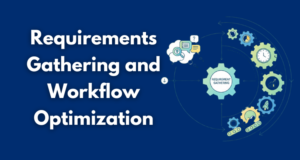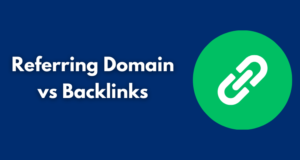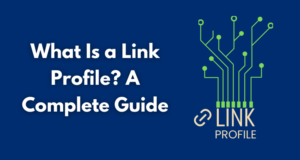AI-powered customer software is changing how businesses manage reputation, customer support, and trust. It goes beyond chatbots and automates tasks that used to take hours of manual effort.
But can these tools actually help improve your reputation and keep customers happy? The short answer is yes, if you use them the right way.
This guide breaks down how AI customer software supports reputation, the tools that make the most impact, and the steps you can take to integrate them into your workflow.
Table of Contents
ToggleWhy Reputation and AI Are Connected

Reputation depends on speed and consistency. AI solutions such as SparrowDesk platform help desk reinforce this by streamlining ticket handling and reducing the time it takes to resolve common customer concerns. Customers expect fast replies, clear answers, and visible fixes when something goes wrong. AI software helps deliver that at scale without burning out your team.
A report from Salesforce found that 88% of customers say experience matters as much as the product. AI tools make it easier to meet those expectations by automating responses, monitoring sentiment, and flagging risks before they escalate.
For example, a SaaS company implemented an AI ticketing system to auto-assign urgent complaints. Their support lead said, “We cut response time from 12 hours to 90 minutes. Our reviews shifted from 3.8 to 4.4 stars in three months.” Faster resolution directly improved their public feedback and retention.
How AI Tools Protect Your Reputation
1. Real-Time Review Monitoring
AI software can track customer reviews across platforms like Google, Yelp, and Trustpilot. It automatically tags sentiment and flags negative ones for immediate response. This helps you fix problems quickly before they snowball.
A hotel manager shared that they used AI review alerts to respond within an hour to a guest complaint. “We handled it so fast the guest updated their review from two stars to five. Without the alert, we wouldn’t have seen it until days later.”
2. Automated Customer Service
AI chatbots and ticketing platforms handle routine questions instantly. This frees your team to focus on higher-level issues. Customers get faster replies, which boosts satisfaction and prevents frustration from spilling into public complaints.
Companies using AI chat see an average 30% drop in repetitive support tickets. That means more time for personalized service and fewer angry customers venting online.
3. Sentiment Analysis on Social Media
AI tools track what people are saying about your brand in real time. If a post about your business starts trending negatively, you get alerts before it spreads. This early warning system gives you a chance to respond or fix the issue fast.
One retail brand avoided a PR problem when their AI dashboard flagged a viral post complaining about a faulty product batch. They contacted buyers, offered replacements, and turned it into a positive story before it hit mainstream attention.
AI and Search Result Cleanup
AI cannot directly erase harmful content from Google, but it plays a key role in reputation cleanup strategies. It can analyze search results and recommend actions to improve what customers see first.
For instance, if you want to learn how to remove search results from Google, AI software can identify which pages are hurting your brand and track whether new positive content is pushing them down. Some platforms even automate publishing new articles and updates designed to outrank negative links.
This combination of monitoring and optimization creates a constant feedback loop. You see where you stand, make changes, and track progress without guessing.
How to Use AI Customer Tools Effectively
1. Integrate with Your Existing Systems
Most AI platforms connect with CRMs, email tools, and helpdesk software. This creates one unified view of customer interactions. Your support team can see reviews, social mentions, and open tickets in one place, which prevents overlap and speeds up responses.
2. Automate the Right Tasks
Do not automate everything. Routine questions like hours, shipping updates, or basic troubleshooting are ideal for AI bots. Keep complex or emotional cases with human agents. This balance ensures customers feel heard when it matters most.
3. Train Your AI Models
Many tools let you customize replies and workflows. Feed them common questions, past ticket data, and brand-specific language. This makes AI responses sound natural and aligned with your tone.
Top AI and Reputation Tools to Consider
Here are three standout solutions that combine AI and reputation management:
- Erase: Specializes in suppressing or removing harmful search results and boosting positive visibility. Their AI-driven tracking spots negative content early and measures progress as cleanup campaigns run.
- Brandwatch: Known for AI-powered sentiment analysis across social media, forums, and blogs. It provides trend reports and alerts so you can act before issues escalate.
- Birdeye: A customer experience platform with AI review management, automated messaging, and reputation scoring. It helps businesses generate new reviews and track ratings in real time.
These tools complement each other. Erase handles cleanup, Brandwatch provides monitoring, and Birdeye focuses on reviews and direct engagement.
Benefits You Can Expect
1. Faster Response Times for Complaints and Inquiries
AI tools cut response times dramatically by automating ticket routing and answering routine questions instantly. Instead of waiting hours or days for a reply, customers receive quick solutions through AI chatbots or automated email workflows. This speed reduces frustration and prevents complaints from escalating to public forums or negative reviews.
For example, an e-commerce business integrated AI-driven chat support and saw their average response time drop from 8 hours to less than 30 minutes. Customers appreciated the immediate help, which improved their trust in the brand. Fast replies show you are attentive and professional, two traits that directly influence how customers talk about you online.
2. Higher Review Scores Due to Proactive Follow-Ups
AI can automate review requests and follow-ups after purchases or service visits. When businesses ask customers for feedback shortly after a positive experience, they increase their chances of earning good reviews. Automated reminders also ensure no opportunity is missed.
One dental office used AI to send review requests via text messages after appointments. Within two months, they added over 100 new positive reviews and raised their average rating from 4.0 to 4.6 stars. Proactive review management not only improves ratings but also creates a steady stream of fresh, positive content for search results.
3. Reduced Churn from Quicker Resolutions
Customer churn often happens when issues are left unresolved for too long. AI helps flag urgent complaints, prioritize tickets, and provide immediate solutions for common problems. When customers see that their concerns are addressed quickly, they are far less likely to leave for competitors.
A subscription box company used AI to identify patterns in customer complaints. They automated fixes for recurring issues like delayed shipments, cutting complaint resolution time by 70%. As a result, their cancellation rate dropped significantly, showing how faster resolutions directly protect revenue and long-term loyalty.
4. Stronger Control Over Search Visibility
AI reputation tools can monitor search results and identify which pages or links impact your brand the most. They help track changes over time and support content strategies to push positive results higher. Combined with services like Erase, this creates a clear path to suppress negative links and showcase favorable content instead.
For example, a financial services firm used AI to analyze which search terms triggered harmful articles. They then worked with Erase to create targeted content campaigns. Within three months, their branded searches showed only positive articles, while damaging links moved off the first page. This visibility shift improved lead quality and increased conversion rates from search traffic.
These benefits stack up fast. The local clinic mentioned earlier saw its rating rise from 3.2 to 4.5 stars and new inquiries climb 40% after combining AI review monitoring with Erase’s cleanup strategies. Faster replies, improved ratings, reduced churn, and cleaner search results all worked together to transform how customers viewed the business.
Simple Workflow to Start
- Set Up AI Monitoring: Use Brandwatch or Birdeye for social mentions and reviews.
- Connect to Your Support Desk: Route AI alerts to your team for quick action.
- Publish Positive Content: Pair with Erase to push down outdated or harmful links.
- Review Monthly Reports: Track sentiment shifts, ratings, and search ranking changes.
- Tweak Automation Rules: Refine your AI replies and triggers based on customer feedback.
This process keeps reputation management simple and measurable.
AI customer software is more than a convenience. It is a direct way to improve your reputation, cut response times, and keep customers happy. When paired with monitoring and cleanup tools, it gives you both prevention and repair in one package.
If you want to stay competitive, using AI to manage feedback, support, and visibility is no longer optional. It is the fastest way to protect your brand and turn more prospects into loyal buyers.










